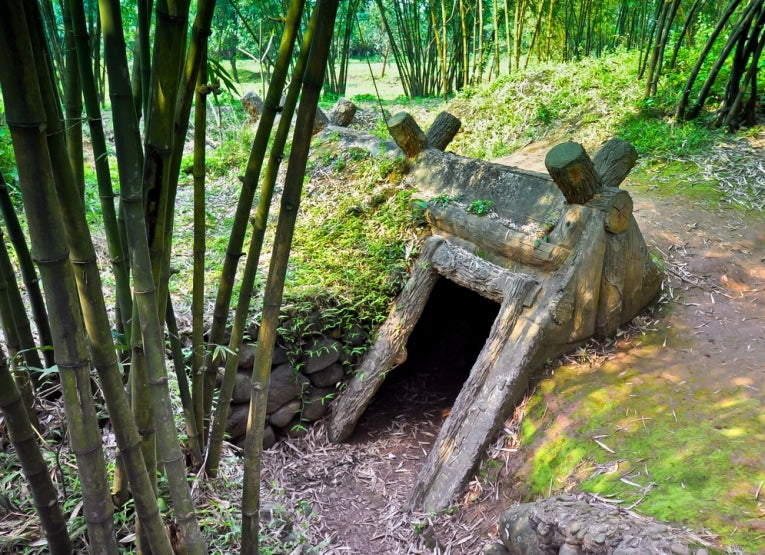The International Day for Preventing the Exploitation of the Environment in War and Armed Conflict
On 5th November 2001 the UN General Assembly passed a resolution declaring the from that year onward 6thNovember would be designated as The International Day for Preventing the Exploitation of the Environment in War and Armed Conflict.
Traditionally in times of warfare and conflict, success had been gauged by the number of dead and injured, together with the level of destruction to cities and livelihoods. The UN felt that the time had come to consider environmental issues that had previously gone unpublicised, but were still significant victims of war.
These include water supplies that had been polluted, crops that had been burnt or otherwise destroyed, forests that had been cut down, soils poisoned and animals killed, all in the name of gaining military advantage.
A significant fact that was discovered by the UN Environment Programme (UNEP) was that since the end of World War II, 40% of all internal conflicts have been linked to the exploitation of natural resources. These range from high value resources such as timber, gold, diamonds and oil, to scarce resources such as fertile land and water.
Conflicts involving natural resources have also been found to be twice as likely to recur in the future.
This is of particular concern to the UN and great importance is attached to ensuring that action on the environment is an important part of conflict prevention, and building strategies to ensure an enduring peace. There is little hope of any durable peace in a region if there has been destruction of the natural resources that sustain its ecosystems and the livelihoods of its people.
Politicians will usually be very quick to justify going to war, but the fact remains that whatever its justification, war will always result in untold misery and unspeakable horror for combatants and civilians alike. War can destroy in minutes what has often taken generations to achieve and beyond the human suffering war can also be devastating to the environment.
A classic example was the Vietnam War. The Vietcong soldiers were skilled at moving around undetected by using paths in the dense jungle. As a result they were able to conduct a guerrilla war against the US forces and remain totally undetected.
The US military forces countered this by using a mixture of two herbicides known as Agent Orange, which was sprayed on the forest from a height of 150 feet above the treetops. This had the effect of killing all the vegetation that had provided cover for the enemy, as well as all their food crops. It was also highly dangerous to anyone who came in contact with it and in 1971 its use was stopped, but by then it had been in use for ten years and irreparable damage had been done.
It is estimated that the Vietnam War was eventually responsible for the destruction of 4.9 million hectares of forest, or about 19,000 square miles, an area nearly two-thirds the size of Scotland.
It has also been estimated that during the 19 years and 5 months of the war around 16 million tons of munitions were used, creating more than 30 million craters. These craters blew away the topsoil and disturbed the drainage patterns as they filled with water. This water became stagnant and full of disease-bearing organisms.
Irreparable damage was done to wildlife, not only by destruction of habitat but also as a result of weaponry. Weapons aimed at the enemy not only killed people, but large numbers of animals also.
Putting aside humanitarian considerations, the war was an ecological disaster for the entire region. Many species of animals and vegetation have been greatly reduced and in some cases have become extinct.
Following the ending of the war the Vietnamese government has been making enormous efforts to replace the lost forest and to restore the shattered country. These efforts have met with great success, but what a tragedy that they have been necessary in the first place.
The International Day for Preventing the Exploitation of the Environment in War and Armed Conflict was established to highlight the environmental consequences of war and to stress the importance of neither exploiting nor heedlessly damaging ecosystems, simply in the name of pursuing military objectives.
The environment has been described the "silent casualty" of warfare.
Since time began, men have been developing evermore sophisticated and efficient ways of killing each other. Although international treaties have banned some of the more dreadful methods, never has much consideration been given to maltreatment of the environment during wartime, or to the consequences of its systematic extermination.
Today's generation have responsibility for this safeguarding; if this is neglected, the next generation may find that much of the environment as we now know it will have gone for ever.










